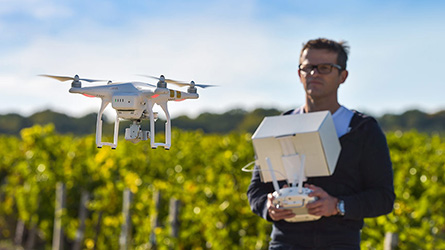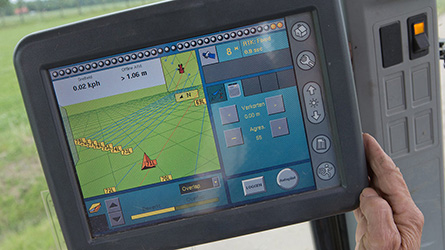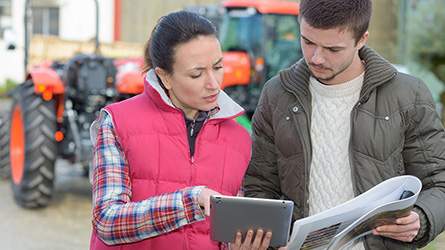Research and knowledge

.svg)
What we do
Equipping farmers
Working with living things and the land is the basis of a farmer's job. This requires an increasing range of knowledge and know-how to be able to produce more with less, responding to environmental and consumer concerns. The traditional farming toolbox has shrunk considerably. Meanwhile, new technological, biotechnical and agronomical solutions are emerging on a global scale. Europe should be mindful not to limit its farming community’s access to technology while competitors benefit from the most recent innovations. We also need to keep European agronomic research in Europe, as European farming systems require ever more tailored responses.
Facilitating technological uptake
Within this fast-changing environment, in order to facilitate technological uptake among farmers, a high level of knowledge, training and advisory services are necessary. Today, around 31% of all active farmers have participated in some form of agricultural training in Europe.
What we believe
Advancing new technologies
Advanced technologies will empower farmers and forest owners to produce more efficiently, helping to close the production cycle while reducing all externalities. This, in turn, will improve farmers’ and forest owners’ integration in the food supply chain. Incorporating information and communications technology as well as new breeding and agronomic techniques in our farm business models will bring tangible positive results, ensuring that farmers can continue to deliver quality products to consumers while reducing the environmental impact.
Fostering innovation
To remain a leading farming continent, Europe should remain open to innovation in agriculture, strengthening our farming model. European farmers and agri-cooperatives have always been eager to adapt and improve their practices, but they need concrete options and a comprehensive toolbox to be effective.

.svg)

.svg)
What we call for
Access to varieties
We call on the European institutions to ensure that European farmers and agri-cooperatives are not deprived of the technical options that enable them to face the challenges ahead and compete in dynamic markets. Europe should enable the breeding of varieties to help farmers meet societal demands and challenges regarding climate change, the environment, biodiversity, and the production of sufficient, high-quality food and feed. This can be achieved by providing plant breeders with access to modern plant breeding methods such as targeted mutagenesis.
Involving farmers
We call for better involvement of farmers and agricultural cooperatives in the innovation process by increasing the funds allocated to agricultural research and innovation activities. Farmers should not be classified as ‘end-users’ but should play an integral part in all innovation processes. The amount of bureaucracy that comes with participation in European projects must be limited in order to ensure that small and medium-sized farming businesses can get involved. European farmers need to have equal access to education and lifelong learning. Specific actions need to be carried out under Erasmus+ but also under the European Social Fund Plus (ESF+) to support farmers and agri-cooperatives in meeting their training and development goals.



.svg)